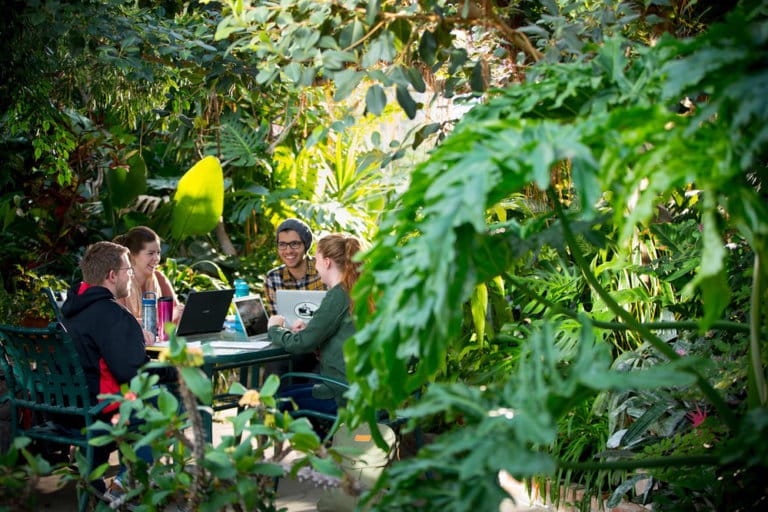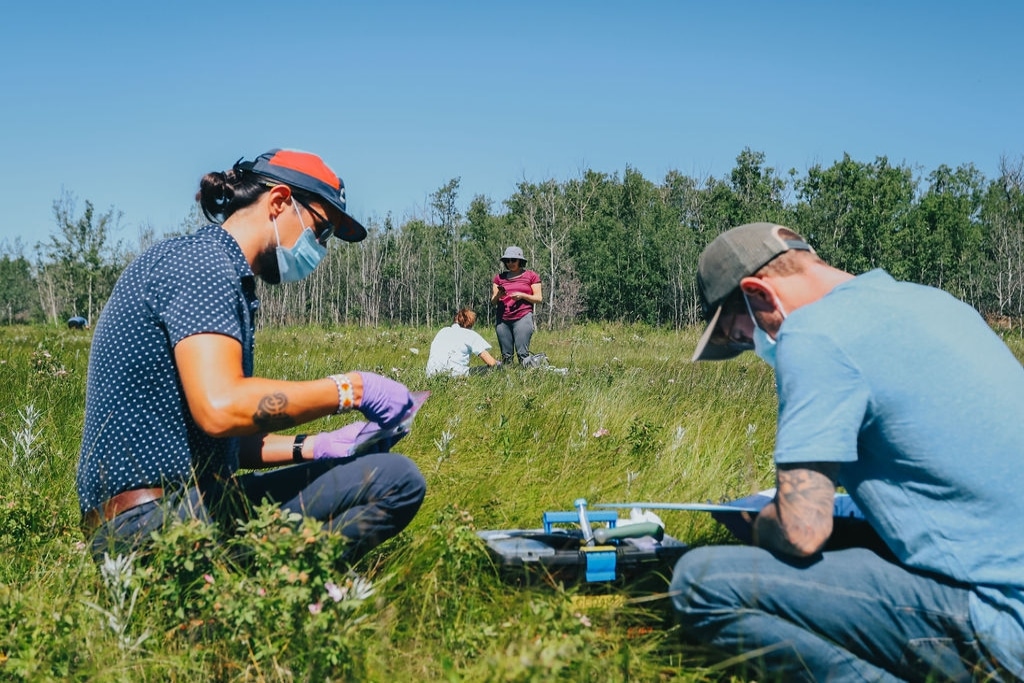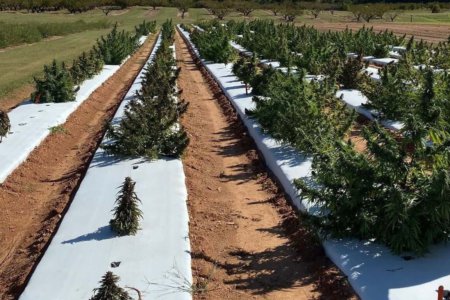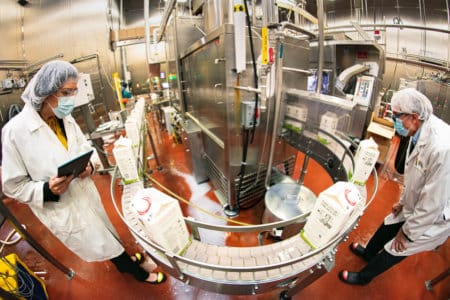
A growing world population means an increasing global demand for food supply. According to the World Bank, there are over 200 million people facing famine conditions. Addressing the problem and getting to the root of it requires individuals who are not only knowledge-rich but also well-equipped with skills and creativity to solve the world’s food crisis.
Many universities have recognised this urgency and are constantly improving their curriculum to produce highly sought after graduates that are ready to hit the ground running and contributing towards a healthier tomorrow.
Below are the universities that are innovative and ready to solve tomorrow’s global food supply challenges:
University of Guelph
The Ontario Agricultural College (OAC) of the University of Guelph (Canada’s Food University) is on a mission to improve life by inspiring leaders, generating knowledge and creating innovative solutions for food, agriculture, communities and the environment.
Sustainability is at the heart of everything here, an endeavour that began over 150 years ago with its founding colleges as they advanced knowledge, promoted education and fostered connections with communities.
Today, ranked second in Canada and 20th in the world for Agriculture and Forestry (QS World University Rankings by Subject 2022), it continues to prioritise sustainability in its teaching, research, campus and community.
Sustainability of the global food and agriculture sector are key themes of the University of Guelph’s multi-million-dollar, multi-year Food from Thought initiative. Listen to experts and emerging leaders from #UofG discuss the road ahead in the “Future of Food” video here. It’s a future where we must combat climate change, ingredient shortages and food insecurity with collaboration, technology and adaptability.
OAC’s Master’s and PhD programmes set graduates up to make a difference. Choose between studying sustainability of animals, the environment, food, plants, or communities. Whichever you choose, what you learn will be backed by world-leading research.
It is OAC’s and the University of Guelph’s partnerships that are key to building their strengths in sustainable food and agriculture. Their long-standing partnership with the province of Ontario’s Ministry of Agriculture, Food and Rural Affairs (OMAFRA) through the Ontario Agri-Food Innovation Alliance provides students and researchers access to an extensive network of thought leaders and research field sites allowing for a unique opportunity for conducting and benefitting from long term field trial research.
Their engagement with Agriculture and Agri Food Canada on various scientific initiatives advancing environmentally, economically and socially sustainable agriculture has helped to position Canada as a global leader in the development of innovative solutions that improve both the sustainability and productivity of agricultural and food production at global, landscape, and micro scales.
If you’re ready to leave your mark on the world and come up with innovative agricultural solutions, learn more about OAC’s graduate level programmes here.
University of Alberta
University of Alberta’s Department of Agricultural, Food and Nutritional Science (AFNS) offers programmes related to the fields of Animal Science, Food Science and Bioresource Technology, Human Nutrition and Plant Biosystems.
Students can choose from a wide range of undergraduate and postgraduate programmes in Agriculture, Animal Health, Agricultural or Food Business Science and Nutrition and Food Science. Those pursuing their master’s can pick between a course-based or thesis-based Master of Agriculture, Master of Science or a PhD.

University of Alberta is well-equipped with top-notch facilities that provide students with hands-on learning opportunities. Source: University of Alberta/Facebook
Placing research at the heart of their courses, the Faculty of Agricultural, Life and Environmental Sciences has international partnerships with global universities and research collaborators. Some of these institutions include University of Edinburgh, China Agricultural University and Kyoto University.
To further encourage research work, the university is well-equipped with research stations such as Agri-Food Discovery Place, Dairy Research Technology Centre and Dairy Research Technology Centre – providing students with many lab opportunities.
Graduate students like Dilrukshi Kombala Liyanage can attest to this. As one of the finalists for the Faculty of Graduate Studies and Research’s Three Minute Thesis (3MT) competition, she plans to address future climate change issues and food production using innovative science.
“The U of A is research intensive and invests a lot in improving its research facilities. Students get the chance to work with many new technologies to do groundbreaking research studies,” shares Liyanage.
“The academic staff is so supportive and highly qualified with lots of experience which is a great benefit when designing and conducting complex research studies.”
Learn more about the Department of Agricultural, Food and Nutritional Science here.
University of Massachusetts Amherst
Considered one of the nation’s top pioneers in Food Science, University of Massachusetts Amherst is ranked third in the Best Global Universities for Food Science and Technology ranking by US News and World Report. The Department of Food Science also prides itself on being a major academic centre in New England and the only research-oriented department of its kind in Massachusetts.

The Department of Food Science at the University of Massachusetts is the first in the nation to introduce a Food Science programme. Source: University of Massachusetts Amherst/Facebook
UMass Amherst has been awarded US$5.34 million in research funding, covering four research areas: Food and Environmental Biotechnology, Physical-Chemical Properties of Food, The Safety of Food and Foods for Health and Wellness.
The Department of Food Science has core facilities that further encourage student participation in research. With research embedded in the courses, students have a wealth of opportunities to work in faculty labs and participate in research and scholarly opportunities on and off campus throughout the year, international programs, internships and co-ops, and more.
Since 1995, UMass Amherst established an Industrial Strategic Research Alliance programme and have done over 50 collaborative research projects with the food industry since its inception. The programme’s goal is to keep members up to date with the latest research areas, establish strong relationships with the faculty leading to sponsored research, get exposure to the students/future employees and discuss common challenges facing the industry.
The university offers a BS in Food Science and a five year BS/MS programme in Food Science and Technology. There are three Food Science concentrations: Food Science and Technology, Food Studies and Culinary Science.
Click here for information on admissions to the University of Massachusetts Amherst.
University of Illinois Urbana-Champaign
The Department of Agricultural and Biological Engineering (ABE) at the University of Illinois Urbana-Champaign (UIUC) offers undergraduate majors, graduate and professional degrees and four professional certificates.
It focuses on five main research areas – Bioenvironmental Engineering, Biological Engineering, Food and Bioprocess Engineering, Off-Road Equipment Engineering and Soil and Water Resources Engineering — which take place in state-of-the-art facilities.
Some of these facilities include Air Quality Lab, BioEnvironmental and Structural Systems (BESS) Lab, Farm Research and Training Centre (FRTC) and Storm Water Pollution and Erosion Control Research and Training Center.

The University of Illinois at Urbana-Champaign produces high-impact research, teaching and outreach with its state-of-art-facilities. Source: University of Illinois at Urbana-Champaign/Facebook
What’s more, 80% of our students land at least one internship during their undergraduate career. Such experiential learning opportunities will better prepare them for the working world or to pursue further their postgraduate studies.
Take third year student Aaliya Lokhandwala for example. Last summer, she was able to gain an internship experience at an environmental, due diligence consulting company, EBI Consulting.
“This opportunity allowed me to work with clients and understand what energy audits and assessments were. I also got the chance to calculate data that is now in their 2021 Sustainability Report! I learned that a great team and communication can take you very far,” shares Lokhandwala.
Student success stories are plenty. All of ABE students reported securing their first choice destination upon graduation with an impressive average starting salary of US$73,200. They do so in Fortune 500 companies, consulting firms, academia, government agencies, non-profit groups, and research institutions.
What’s more, the university also offers financial support for students in both undergraduate and graduate programmes. Apply to the University of Illinois at Urbana-Champaign here.
*Some of the institutions featured in this article are commercial partners of Study International










